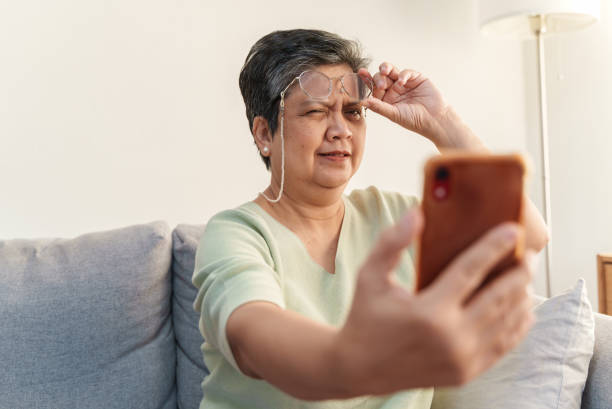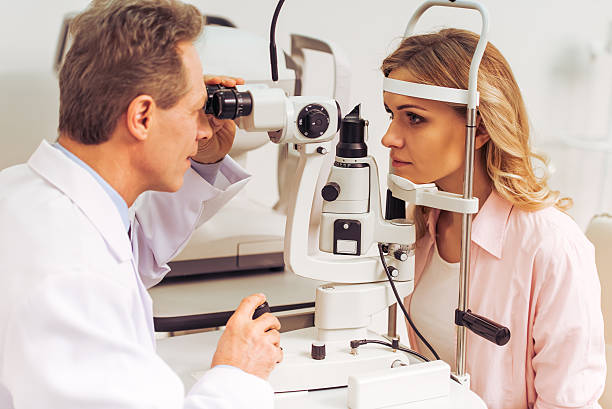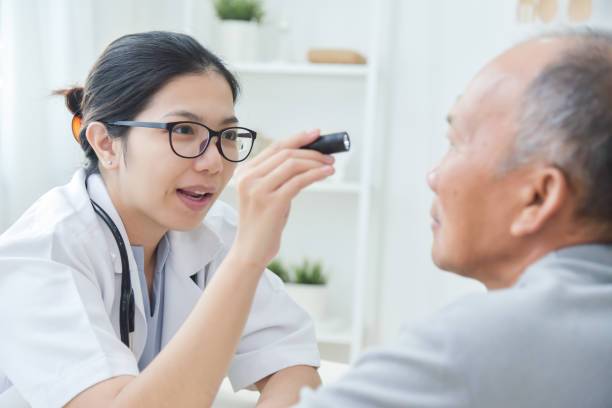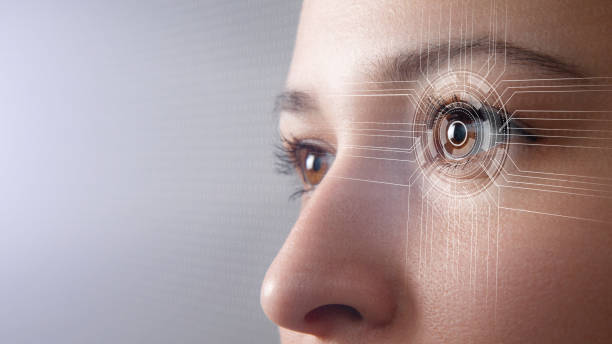Maintaining sharp vision isn’t just about seeing clearly. It’s about protecting your eyes for the future and staying ahead of common problems like eye strain, dryness, or blurry vision. Today’s lifestyle—filled with screen time, low-light environments, and poor diet choices—can all affect how well you see. Whether you spend hours on a screen, struggle to read fine print, or just want to take care of your vision, this guide is for you.
Let’s unlock the secrets to better eye health—one step at a time. From daily habits to smart food choices, you’ll learn simple ways to keep your eyes strong and your vision clear.
Why Sharp Vision Matters
Good eyesight helps you live life to the fullest. It affects how you drive, read, work, and even how you enjoy nature or family time. Clear vision helps you stay safe, stay active, and stay connected to the world around you. But over time, vision can decline without warning. You may not notice small changes at first, but they can grow into bigger problems if ignored. That’s why regular eye care is so important—it helps catch issues early and keeps your eyes strong for years to come.
Common Signs Your Eyes May Need Help
- Blurry or fuzzy vision
- Trouble seeing at night
- Frequent headaches
- Dry, itchy, or watery eyes
- Needing more light to read
If you notice these signs, it may be time to take action. Eye health can improve with the right habits.

What Causes Vision Problems?
Many people think poor eyesight is just a part of aging—but that’s not always true. Your daily habits play a big role in how your eyes age. What you eat, how much sleep you get, and even how long you stare at screens can affect your vision over time. Smoking, lack of exercise, and skipping eye exams can also speed up vision loss. The good news? Making small changes now can help protect your eyes and keep your vision sharp as you get older.
Top Causes of Vision Loss
- Digital eye strain from screens
- UV damage from sun exposure
- Poor nutrition
- Smoking
- Chronic health issues like diabetes or high blood pressure
These are just some of the common threats to your eye health. Staring at screens for hours can cause dry eyes, headaches, and blurry vision. Too much sun without eye protection can damage your retina over time. Eating unhealthy foods can lead to vitamin shortages that weaken your eyes. Smoking reduces blood flow to the eyes, increasing your risk for diseases like cataracts. And health problems like diabetes and high blood pressure can damage the tiny blood vessels in your eyes.
Knowing the risks is the first step to prevention. When you understand what harms your vision, you can take steps to protect it every day.
The Best Foods for Sharp Vision
What you eat can support or weaken your eyesight. Certain vitamins and antioxidants are proven to help protect your eyes. Nutrients like vitamin A, C, and E, as well as zinc and omega-3 fatty acids, play a key role in keeping your vision sharp. These nutrients help fight off damage from light, aging, and free radicals. Foods like carrots, leafy greens, fish, eggs, and citrus fruits are packed with eye-healthy nutrients. A balanced diet not only boosts your overall health but also lowers your risk of eye conditions like macular degeneration and cataracts.
Eye-Friendly Nutrients
- Vitamin A – Keeps your retina healthy and supports good vision, especially in low light. A lack of vitamin A can lead to dry eyes or even night blindness.
- Vitamin C – Protects against cataracts by strengthening eye tissues and fighting damage from UV rays and pollution. It also helps repair cells and supports blood vessels in the eyes.
- Vitamin E – Fights free radicals that damage your eye cells. This antioxidant helps slow age-related vision loss and keeps your eyes strong as you age.
- Lutein & Zeaxanthin – Filters harmful blue light from screens and sunlight. These nutrients build up in the retina and help prevent eye strain and macular degeneration.
- Zinc – Helps with night vision and supports the retina’s health. Zinc also helps your body absorb vitamin A more effectively.
- Omega-3s – Reduces dry eyes by helping your tear glands work better. Omega-3 fatty acids also lower inflammation and may protect against macular damage.
Top Vision-Boosting Foods
- Carrots
- Leafy greens (like spinach and kale)
- Sweet potatoes
- Eggs
- Citrus fruits
- Fish (salmon, tuna, sardines)
- Almonds and sunflower seeds
- Habits That Help You See Clearly
Changing just a few habits can go a long way in protecting your vision.
1. Follow the 20-20-20 Rule
Every 20 minutes, look at something 20 feet away for 20 seconds. It helps reduce eye strain from screens.
2. Wear Sunglasses
Choose sunglasses that block 100% of UVA and UVB rays. Too much sun exposure can damage your retina.
3. Keep Your Hands and Lenses Clean
Dirty hands or contact lenses can spread germs and lead to infections.
4. Blink Often
Staring at screens makes us blink less. Blinking keeps your eyes moist and comfortable.
How Screen Time Affects Your Eyes
We spend hours on phones, tablets, and computers. This can lead to digital eye strain, also called computer vision syndrome. Symptoms include dry eyes, blurry vision, headaches, and neck or shoulder pain. Staring at screens for too long makes your eyes work harder, especially when lighting or screen settings aren’t ideal. Blinking less while using devices can also make dryness worse. Taking regular breaks, adjusting screen brightness, and following the 20-20-20 rule can help reduce strain and protect your eyes over time.
Symptoms of Digital Eye Strain
- Tired or burning eyes
- Blurred vision
- Headaches
- Neck or shoulder pain
To fight it:
- Adjust screen brightness
- Sit about 25 inches from the screen
- Use blue light filters or glasses
The Truth About Eye Supplements
Eye vitamins are popular—but do they work?
Research shows that some supplements can slow down age-related eye issues. The AREDS2 formula, for example, helps people with moderate to advanced age-related macular degeneration (AMD). This formula includes vitamin C, vitamin E, zinc, copper, lutein, and zeaxanthin. Together, these nutrients help protect the retina and may reduce the risk of vision loss. While eye vitamins won’t cure vision problems, they can be an effective part of your eye care plan—especially if you’re at higher risk for conditions like AMD or cataracts.
Look for Supplements With:
- Vitamin C (500 mg)
- Vitamin E (400 IU)
- Lutein (10 mg)
- Zeaxanthin (2 mg)
- Zinc (80 mg)
- Copper (2 mg)
Before starting any supplement, talk to your eye doctor.

Regular Eye Exams: Why They Matter
Even if you see fine, you should still get your eyes checked. Many eye diseases don’t show symptoms early. Conditions like glaucoma, diabetic retinopathy, and macular degeneration can develop slowly and silently. By the time you notice vision changes, damage may already be done. Regular eye exams help catch problems early—when they’re easier to treat. Your eye doctor can also spot signs of other health issues, like high blood pressure or diabetes, during a simple eye test.
Eye Conditions That Can Be Silent
- Glaucoma
- Macular degeneration
- Diabetic retinopathy
- Cataracts
Adults should have a full eye exam at least every 1–2 years. Children need them too, starting at 6 months old.
Natural Remedies to Support Vision
While you should never skip medical care, some natural options may support eye comfort and clarity.
Try These Safe, Natural Tips
- Use warm compresses to relieve dry or tired eyes
- Try artificial tears or lubricating eye drops
- Eat more anti-inflammatory foods (like berries, nuts, and leafy greens)
- Practice eye yoga or gentle eye movements
- Stay hydrated to keep eyes moist
These won’t cure eye disease but can help with daily eye comfort.
Can Vision Really Improve Naturally?
There’s no miracle cure for poor eyesight, but you can often prevent further loss and protect what you have. Taking care of your eyes every day can make a big difference. This includes eating healthy foods, wearing sunglasses, limiting screen time, and getting regular eye checkups. If you already have vision problems, these habits can help slow them down and keep your eyes from getting worse. The key is to start early and stay consistent with your eye care routine.
Things You Can Improve
- Eye comfort
- Focus and clarity with the right lenses
- Reducing symptoms of strain or fatigue
- Slowing down age-related changes
The key is staying consistent with healthy habits.

When to See a Doctor
Don’t wait for your eyesight to get worse before getting help. If you experience any of the following, call an eye doctor:
- Sudden vision loss
- Double vision
- Flashes of light
- Eye pain
- Redness or discharge
- Trouble seeing at night
Early treatment makes a big difference.
Final Tips for Healthy Eyes
To keep your vision sharp, remember:
✅ Eat for eye health
✅ Rest your eyes often
✅ Wear protective sunglasses
✅ Stay hydrated
✅ Keep up with eye exams
Your eyes work hard every day—take care of them!
Conclusion: Take Charge of Your Vision Today
Your vision is one of your most valuable senses. It helps you stay safe, enjoy the world around you, and live life to the fullest. With a few simple steps, you can protect it for years to come.
Start by:
- Eating more eye-healthy foods – Add leafy greens, carrots, eggs, fish, and citrus fruits to your meals. These are packed with vitamins and antioxidants that support your eyes.
- Taking screen breaks – Use the 20-20-20 rule: every 20 minutes, look at something 20 feet away for 20 seconds. This helps reduce eye strain and keeps your eyes feeling fresh.
- Scheduling your next eye exam – Even if your vision seems fine, regular checkups can catch early signs of eye problems before they get worse.
Small changes can make a big difference. Taking care of your eyes now can help you see clearly for many years ahead.
Have questions or eye health tips to share? Drop a comment below—we’d love to hear from you!

